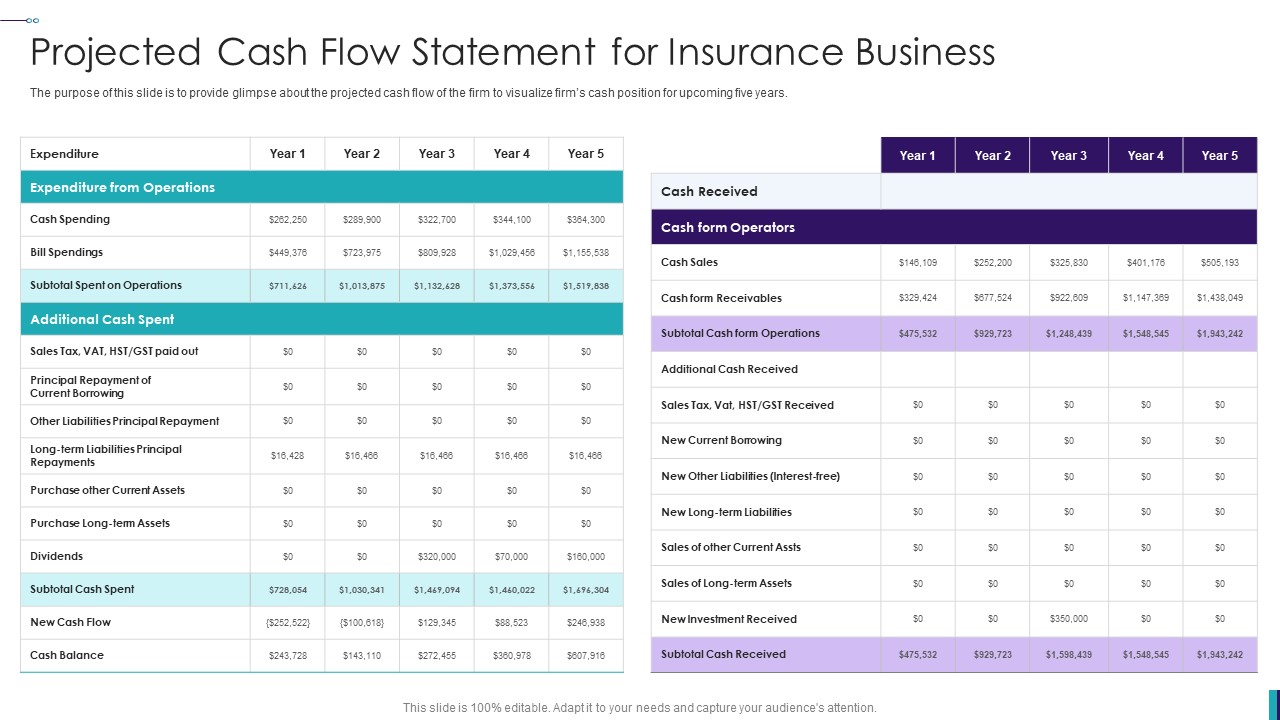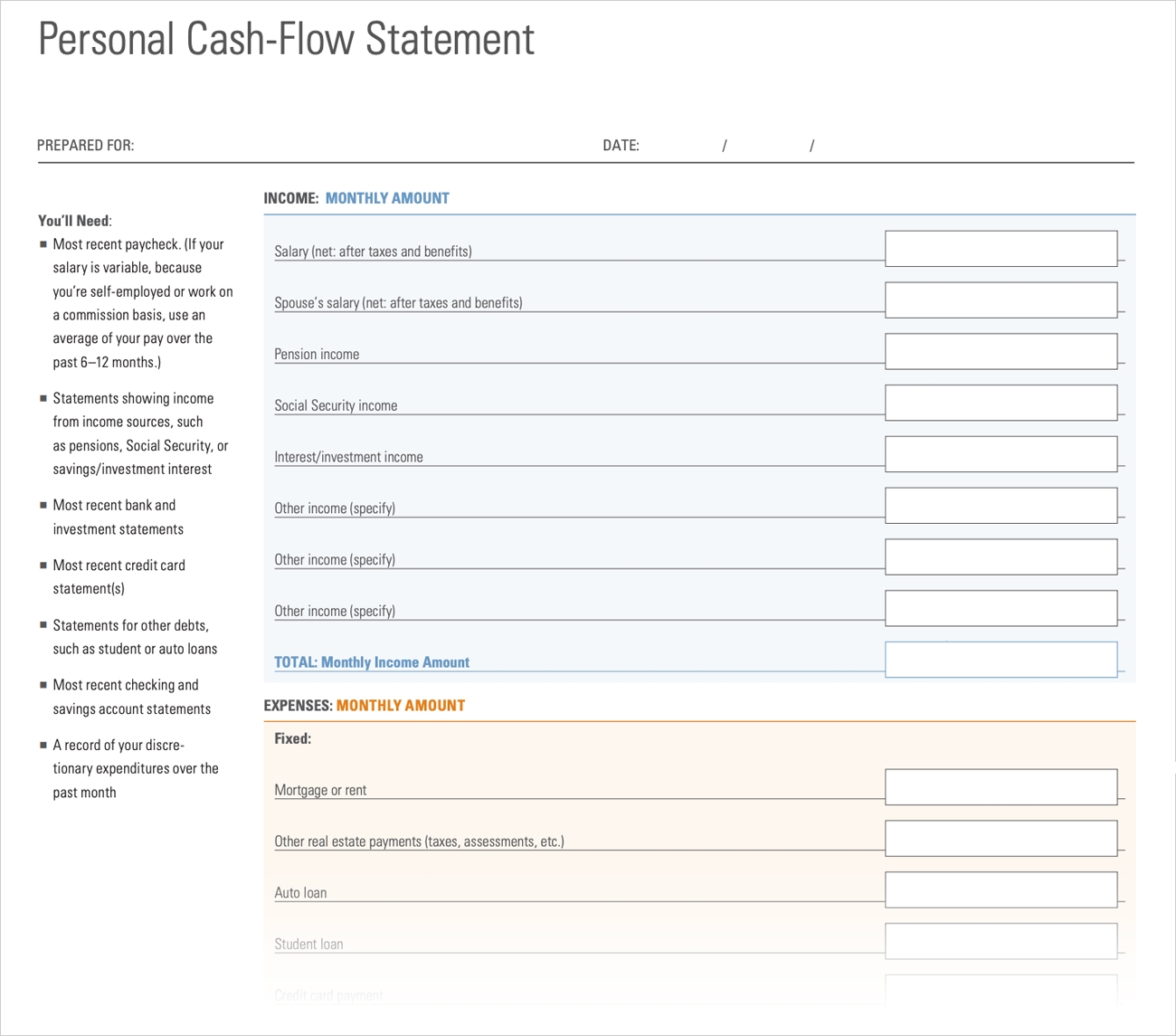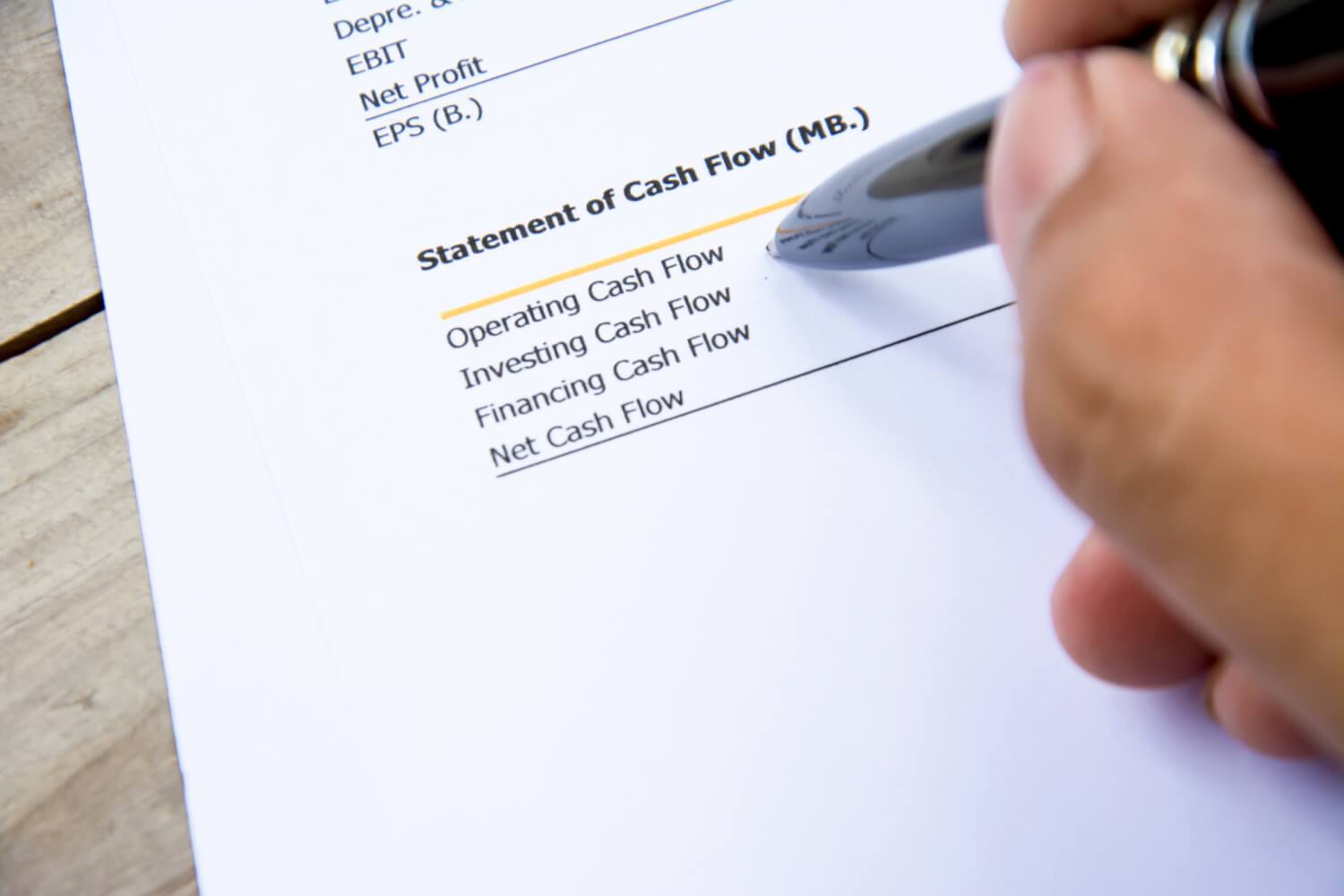

Finance
What Is A Cash Flow Budget
Published: December 20, 2023
Learn how to create and manage a cash flow budget to effectively track your finance. Enhance your financial planning skills with our comprehensive guide.
(Many of the links in this article redirect to a specific reviewed product. Your purchase of these products through affiliate links helps to generate commission for LiveWell, at no extra cost. Learn more)
Table of Contents
Introduction:
Managing personal or business finances can be a challenging task, as it involves intricacies such as budgeting, saving, investing, and making informed financial decisions. One crucial aspect of financial management is cash flow budgeting. A cash flow budget is a comprehensive financial plan that outlines the expected income and expenses over a specific period.
Whether you’re an individual or a business owner, having a clear understanding of your cash flow is essential for maintaining financial stability and achieving your financial goals. A cash flow budget helps you track the inflows and outflows of money, allowing you to make informed decisions regarding saving, spending, and investing.
In this article, we will delve into the concept of cash flow budgeting, explore its importance, discuss the key elements of a cash flow budget, and provide useful tips for effective implementation.
Understanding the dynamics of your cash flow is crucial because it enables you to have a clear picture of your financial health. By implementing a cash flow budget, you can gain control over your income and expenses, make better financial decisions, and avoid financial pitfalls such as overspending or excessive debt.
Moreover, for businesses, cash flow is the lifeblood of operations. It enables you to maintain liquidity, meet financial obligations, and make strategic investments for growth. Having a well-structured cash flow budget ensures that you have the necessary funds available when needed and helps you identify potential cash shortages in advance.
Now let’s explore the key elements of a cash flow budget in the next section.
Definition of Cash Flow Budget:
A cash flow budget is a financial plan that details the projected inflows and outflows of cash over a specified period. It provides a snapshot of the expected cash inflows from various sources, such as sales, investments, loans, and other sources of revenue. It also outlines the anticipated cash outflows, including expenses, purchases, loan repayments, and other financial obligations.
Essentially, a cash flow budget helps individuals and businesses forecast their cash position by estimating the timing and amount of their cash inflows and outflows. It serves as a roadmap for effectively managing cash flow and ensuring that there is enough liquidity to meet financial obligations.
A cash flow budget typically covers a specific period, such as a month, quarter, or even a year. It considers both the regular recurring expenses and the irregular or one-time expenses that may arise. By including all cash inflows and outflows, a cash flow budget provides a comprehensive overview of an entity’s financial health.
It’s important to note that a cash flow budget is different from a traditional budget or profit and loss statement. While a traditional budget focuses on overall income and expenses, a cash flow budget specifically tracks the movement of cash in and out of an individual’s or business’s accounts.
A cash flow budget can be created for personal finances, small businesses, large corporations, and nonprofit organizations, tailored to their specific financial goals and needs.
Next, let’s explore the importance of cash flow budgeting and how it can benefit individuals and businesses.
Importance of Cash Flow Budgeting:
Cash flow budgeting is of utmost importance for individuals and businesses alike. It provides numerous benefits that contribute to financial stability and success. Let’s explore some key reasons why cash flow budgeting is essential:
- Financial Planning and Control: A cash flow budget allows individuals and businesses to plan and control their financial activities effectively. It provides a roadmap for managing cash inflows and outflows, ensuring that expenses are aligned with available funds. By having a clear picture of anticipated income and expenses, individuals and businesses can make informed financial decisions and allocate resources efficiently.
- Liquidity Management: A well-structured cash flow budget helps individuals and businesses maintain adequate liquidity. It ensures that there is enough cash available to meet daily operational expenses, make loan repayments, and handle unforeseen financial obligations. By closely monitoring and managing cash flow, cash flow budgeting helps avoid liquidity crises and allows for better management of financial resources.
- Debt Management: Cash flow budgeting plays a crucial role in managing debt effectively. By accurately estimating cash inflows and outflows, it helps individuals and businesses plan debt repayments and avoid excessive borrowing. It enables them to analyze their capacity to take on additional debt and make timely payments, reducing the risk of default and improving their overall creditworthiness.
- Identifying Cash Shortages: One of the primary benefits of cash flow budgeting is that it helps individuals and businesses identify potential cash shortages well in advance. By forecasting expected cash inflows and outflows, cash flow budgeting allows proactive measures to be taken to address any shortfalls. This could involve negotiating payment terms, securing additional funding, or adjusting spending plans to ensure adequate cash reserves.
- Strategic Decision Making: Cash flow budgeting provides valuable insights for making strategic financial decisions. It allows individuals and businesses to assess the financial viability of potential investments, expansion plans, or major purchases by considering the impact on cash flow. By evaluating the expected cash inflows and outflows associated with different scenarios, cash flow budgeting assists in making informed decisions that align with long-term financial objectives.
In summary, cash flow budgeting is crucial for effective financial management. It helps individuals and businesses plan, control, and optimize their cash flow, ensuring adequate liquidity, debt management, and informed decision making. Next, let’s dive into the key elements of a cash flow budget.
Elements of a Cash Flow Budget:
A cash flow budget consists of several key elements that provide a comprehensive overview of an individual’s or business’s financial position. These elements help in estimating cash inflows and outflows and analyzing the overall cash flow situation. Let’s explore the essential components of a cash flow budget:
- Income: The first element of a cash flow budget is the estimation of income or cash inflows. This includes all sources of revenue, such as wages, salaries, business sales, rental income, interest, dividends, and any other form of income. It is important to accurately project the timing and amount of these inflows to have a realistic cash flow forecast.
- Expenses: The second element is the estimation of expenses or cash outflows. This includes both fixed and variable expenses, such as rent, utilities, loan payments, employee salaries, raw materials, marketing costs, and other operational expenses. It is crucial to account for all regular and necessary expenses to accurately reflect the cash flow impact.
- Investments and Financing: This element pertains to any investments made or financing activities undertaken during the specified period. It includes capital expenditures, equipment purchases, loans taken or repaid, and any other financial activities that directly affect cash flow. These activities should be carefully considered and monitored to gauge their impact on the overall cash flow position.
- Taxes: The cash flow budget should also account for any tax payments, including income tax, sales tax, property tax, and other applicable taxes. Properly estimating and planning for tax obligations is essential to avoid any cash flow surprises and potential penalties.
- Seasonal Variations: Many individuals and businesses experience seasonal fluctuations in their cash flow. This element takes into account any anticipated seasonality in income or expenses, ensuring that the budget adequately reflects these variations. By considering the high and low seasons, businesses can better manage their cash flow throughout the year.
These elements form the foundation of a cash flow budget and enable individuals and businesses to create a comprehensive financial plan. Accurate estimation and monitoring of these elements are essential for maintaining financial stability, making informed decisions, and achieving long-term financial goals.
In the following section, we will discuss the necessary steps to create an effective cash flow budget.
Steps to Create a Cash Flow Budget:
Creating an effective cash flow budget requires careful planning and attention to detail. By following these essential steps, individuals and businesses can develop a comprehensive cash flow budget to guide their financial management:
- Gather Financial Information: Start by gathering all relevant financial information, including income statements, expense records, bank statements, and any other financial documents. This will provide a clear understanding of past cash flows and serve as a foundation for projecting future cash inflows and outflows.
- Estimate Cash Inflows: Analyze your sources of income and estimate the timing and amount of cash inflows. Consider various revenue streams, such as wages, business sales, rental income, investments, and any other sources of income. Be realistic and conservative in your estimates, considering both regular and irregular cash inflows.
- Analyze Fixed and Variable Expenses: Review your expenses and categorize them into fixed and variable expenses. Fixed expenses are recurring costs that remain relatively consistent, such as rent, utilities, and loan payments. Variable expenses, on the other hand, fluctuate based on factors like sales volume, production needs, and marketing activities. Ensure that all expenses are included to accurately reflect your cash flow requirements.
- Factor in Seasonal Variations: If your income or expenses vary seasonally, take this into account when creating your cash flow budget. Identify the periods of increased or decreased cash flow and adjust your estimates accordingly. This will help you manage cash flow fluctuations and ensure that you have sufficient funds during leaner months.
- Add Investments and Financing Activities: Consider any investments, equipment purchases, or financing activities you plan to undertake during the budgeted period. These activities have a direct impact on cash flow and should be carefully analyzed and incorporated into the budget. Account for loan repayments, interest payments, and any other financial obligations related to investments or financing.
- Include Tax Obligations: Don’t forget to account for tax payments in your cash flow budget. Estimate the amount and timing of tax payments, including income tax, sales tax, or any other applicable taxes. Failing to consider taxes can lead to cash flow shortages and potential penalties, so it’s crucial to be diligent in this aspect.
- Monitor and Adjust: Once your cash flow budget is in place, it’s important to regularly monitor and review it. Compare the actual cash inflows and outflows with the budgeted amounts to identify any discrepancies or areas for improvement. Adjust your budget as needed to ensure it remains accurate and aligned with your financial goals.
By following these steps, you can create a comprehensive cash flow budget that provides a clear overview of your financial situation and helps you make informed financial decisions.
In the next section, we will explore the benefits of cash flow budgeting in more detail.
Benefits of Cash Flow Budgeting:
Cash flow budgeting offers numerous benefits for individuals and businesses. By implementing a well-planned cash flow budget, you can gain better control over your finances and improve your overall financial well-being. Let’s explore some of the key benefits of cash flow budgeting:
- Financial Stability: Cash flow budgeting provides a solid foundation for achieving financial stability. By accurately estimating and managing cash inflows and outflows, individuals and businesses can ensure that they have enough funds to cover expenses, repay debts, and handle unforeseen financial emergencies. This stability contributes to reduced financial stress and increased peace of mind.
- Improved Decision Making: With a clear understanding of your cash flow, you can make better financial decisions. A cash flow budget helps you analyze the impact that various choices will have on your financial situation. Whether it’s determining if you can afford to make a large purchase or evaluating the feasibility of a new business venture, cash flow budgeting provides the necessary insights for informed decision making.
- Early Identification of Issues: Cash flow budgeting allows you to identify potential cash shortages or surpluses in advance. By closely monitoring your cash inflows and outflows, you can anticipate periods of reduced cash flow and take proactive measures to mitigate any potential issues. This early identification helps you avoid cash flow crises and enables you to plan accordingly.
- Debt Management: A cash flow budget is instrumental in effective debt management. By accurately forecasting your cash flow, you can plan debt repayments and avoid excessive borrowing. You can also evaluate your capacity to take on additional debt and make informed decisions about loan terms and interest rates. Cash flow budgeting can help you reduce debt, improve your creditworthiness, and lower interest expenses.
- Goal Achievement: Cash flow budgeting allows you to set and work towards your financial goals. By carefully allocating your available funds, you can prioritize saving for emergencies, investments, education, or other long-term objectives. A cash flow budget ensures that you have a clear path for achieving your goals and helps you stay on track.
- Business Growth and Planning: For businesses, cash flow budgeting is crucial for growth and planning. It helps in making strategic investment decisions, maintaining proper working capital, and ensuring that there is sufficient cash flow to cover operational expenses. Cash flow budgeting also aids in securing financing from lenders or investors by demonstrating your ability to manage cash effectively.
In summary, cash flow budgeting offers a multitude of benefits for individuals and businesses alike. It provides financial stability, improves decision making, aids in debt management, facilitates goal achievement, and supports business growth and planning. By implementing effective cash flow budgeting, you can achieve greater financial control and set yourself up for long-term success.
Next, let’s discuss some of the limitations of cash flow budgeting.
Limitations of Cash Flow Budgeting:
While cash flow budgeting offers many advantages, it’s important to be aware of its limitations as well. Understanding these limitations can help individuals and businesses make more informed decisions and develop supplementary strategies to overcome any challenges. Let’s explore some of the key limitations of cash flow budgeting:
- Uncertain Future: Cash flow budgeting relies on prediction and estimation of future cash inflows and outflows. However, the future is inherently uncertain, and unforeseen events can significantly impact actual cash flows. Economic fluctuations, changes in market conditions, unforeseen expenses, or shifts in consumer behavior can all affect the accuracy of cash flow projections.
- Seasonal Variations: Many businesses experience seasonality, where their cash flows vary significantly in different periods. Cash flow budgeting may overlook the nuances of these seasonal variations, which can lead to inadequate liquidity during lean periods or excess cash during peak seasons. It requires careful analysis and consideration of these fluctuations to ensure accurate budgeting.
- Limited Scope: Cash flow budgeting primarily focuses on cash inflows and outflows, often overlooking non-cash items such as depreciation, changes in inventory value, or non-cash expenses. These omissions can impact the overall financial picture and may result in an incomplete understanding of the organization’s financial health.
- Inaccurate Projections: Cash flow budgeting relies on accurate estimation of cash inflows and outflows. However, if the projections are not based on realistic and well-informed assumptions, the budget may be inaccurate. For instance, overestimating sales or underestimating expenses can result in a cash flow shortfall and compromise financial stability.
- Timing Differences: Cash flow budgeting focuses on the timing of cash inflows and outflows, which may not align with the actual occurrence of economic transactions. For example, sales made on credit may not result in immediate cash inflows, and expenses paid in advance may not be reflected in the budget accurately. These timing differences can affect the accuracy of cash flow projections.
- External Factors: Cash flow budgeting is influenced by external factors beyond an individual’s or business’s control. Changes in interest rates, government policies, industry regulations, or global economic conditions can all impact cash flows. These external factors make it challenging to accurately predict cash flow and can create uncertainties in budget projections.
Despite these limitations, cash flow budgeting remains a valuable tool for financial management. It provides a framework for planning and decision-making, even in an uncertain environment. By understanding the limitations and leveraging supplementary financial strategies, individuals and businesses can overcome potential challenges and make more informed financial decisions.
In the next section, let’s explore some tips for effective cash flow budgeting.
Tips for Effective Cash Flow Budgeting:
To ensure that your cash flow budgeting efforts are effective and yield optimal results, consider the following tips:
- Be Realistic: When estimating cash inflows and outflows, be conservative and realistic. Avoid overestimating income and underestimating expenses to prevent potential cash flow gaps.
- Monitor and Review Regularly: Continuously monitor your actual cash inflows and outflows and compare them with your budgeted amounts. Regularly review and update your cash flow budget to reflect any changes or discrepancies.
- Consider Contingencies: Factor in unexpected expenses and build contingencies into your cash flow budget. Having a cushion for emergencies or unforeseen events helps you handle unexpected costs without disrupting your cash flow.
- Plan for Seasonality: If your income or expenses have seasonal variations, account for them in your cash flow budget. Plan accordingly to ensure that you have sufficient cash reserves during lean periods and don’t overspend during peak seasons.
- Manage Debt Wisely: Evaluate and plan your debt repayments strategically. Prioritize high-interest debts and consider consolidating loans or refinancing to reduce interest expenses and improve cash flow.
- Negotiate Payment Terms: Negotiate favorable payment terms with suppliers and vendors to optimize your cash flow. Request extended payment periods or discounts for early payments to effectively manage your cash outflows.
- Improve Cash Collection: Implement efficient invoicing and collection processes to ensure timely receipt of payments. Encourage prompt payment from customers by offering incentives or setting up a streamlined payment system.
- Control Expenses: Analyze your expenses regularly and identify areas where you can cut costs or reduce unnecessary expenditures. Implement cost-saving measures without compromising the quality of goods or services.
- Track and Forecast: Utilize cash flow tracking tools and software to accurately monitor and forecast your cash flow. These tools can help you automate the process and provide valuable insights into your financial position.
- Seek Professional Advice: If you’re unsure about cash flow budgeting or need expert guidance, consider consulting with a financial advisor or accountant. They can provide valuable insights and help you create and manage an effective cash flow budget.
By following these tips, you can enhance the effectiveness of your cash flow budgeting efforts and gain better control over your financial situation. Remember that cash flow budgeting is an ongoing process and requires continuous monitoring and adjustments to remain accurate and relevant.
Next, let’s wrap up the article.
Conclusion:
Cash flow budgeting is a critical aspect of financial management for individuals and businesses. By creating a comprehensive cash flow budget, you can gain better control over your finances, make informed decisions, and achieve financial stability. Understanding the importance of cash flow budgeting and its various elements allows you to develop a realistic and effective financial plan.
While cash flow budgeting has its limitations, such as uncertainties and external factors, these challenges can be mitigated by practicing realistic estimations, regular monitoring, and considering contingencies. Implementing the right strategies and following expert tips for effective cash flow budgeting can help you overcome these limitations and optimize your financial management.
With a well-structured cash flow budget, you can manage your income and expenses, prioritize financial objectives, and improve your overall financial health. Cash flow budgeting helps individuals and businesses in managing their debt, planning for future investments, and achieving long-term financial goals.
Remember, cash flow budgeting is an ongoing process that requires regular review and adjustments. As your financial situation evolves, make sure to update and adapt your budget accordingly. By doing so, you can stay on top of your cash flow, avoid financial surprises, and confidently make financial decisions.
In conclusion, cash flow budgeting is an essential tool for effective financial management. By implementing a well-structured cash flow budget and following sound budgeting practices, you can ensure financial stability, make informed financial decisions, and work towards your long-term financial goals.
Start incorporating cash flow budgeting into your financial routine and experience the positive impact it can have on your financial well-being. Take control of your cash flow today and pave the way for a financially secure future.














